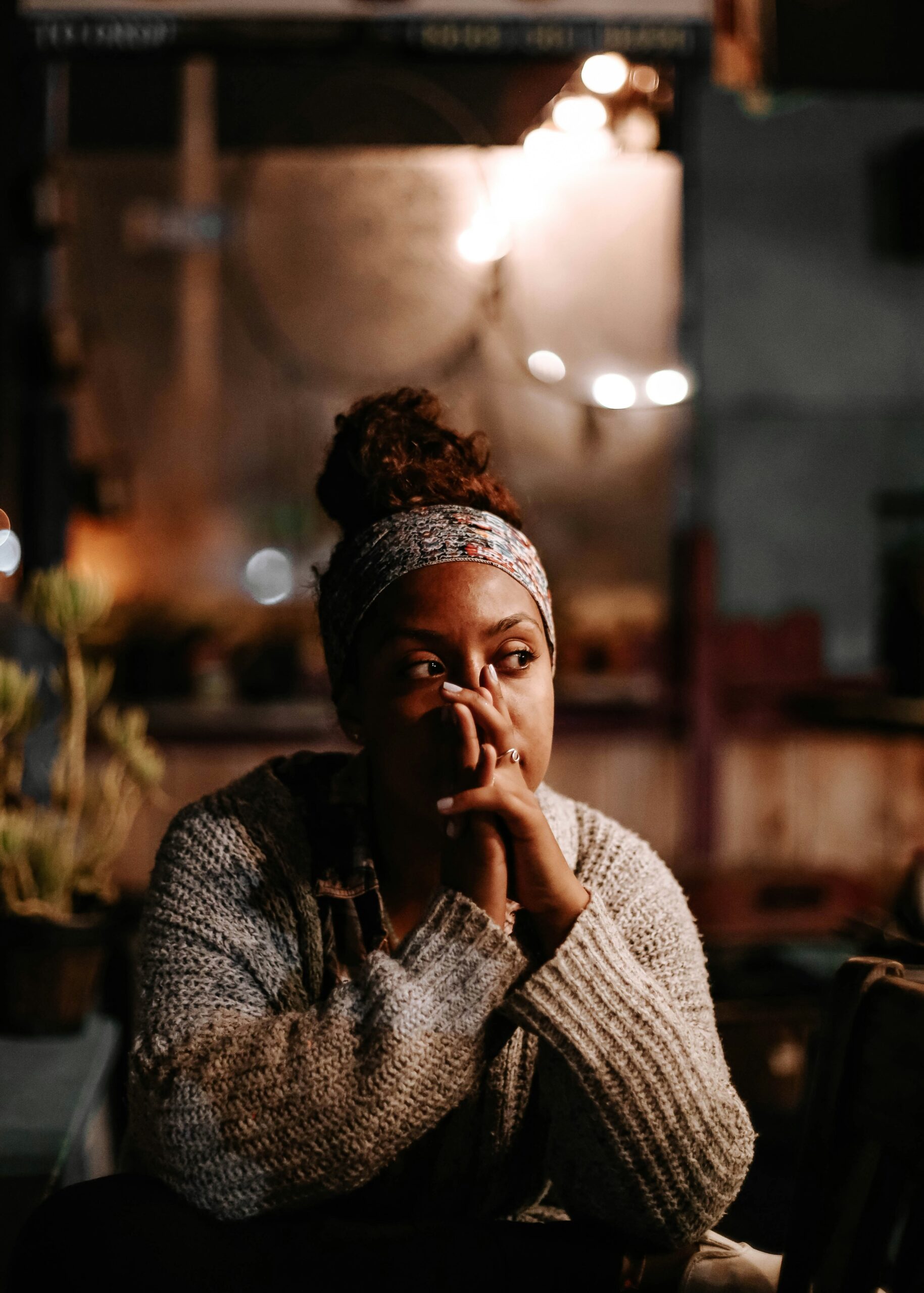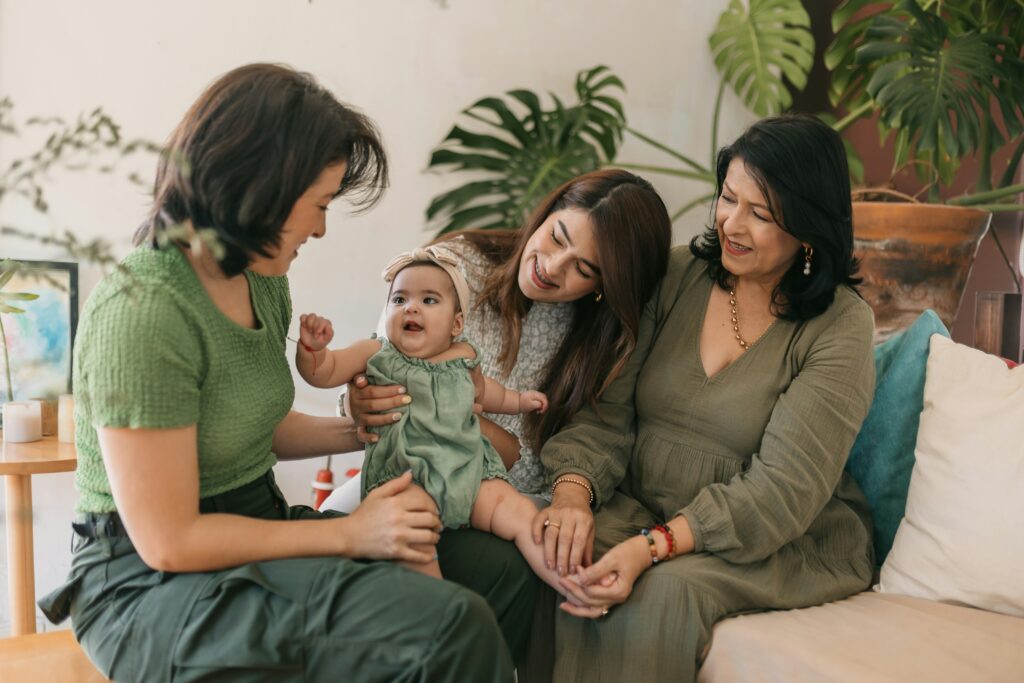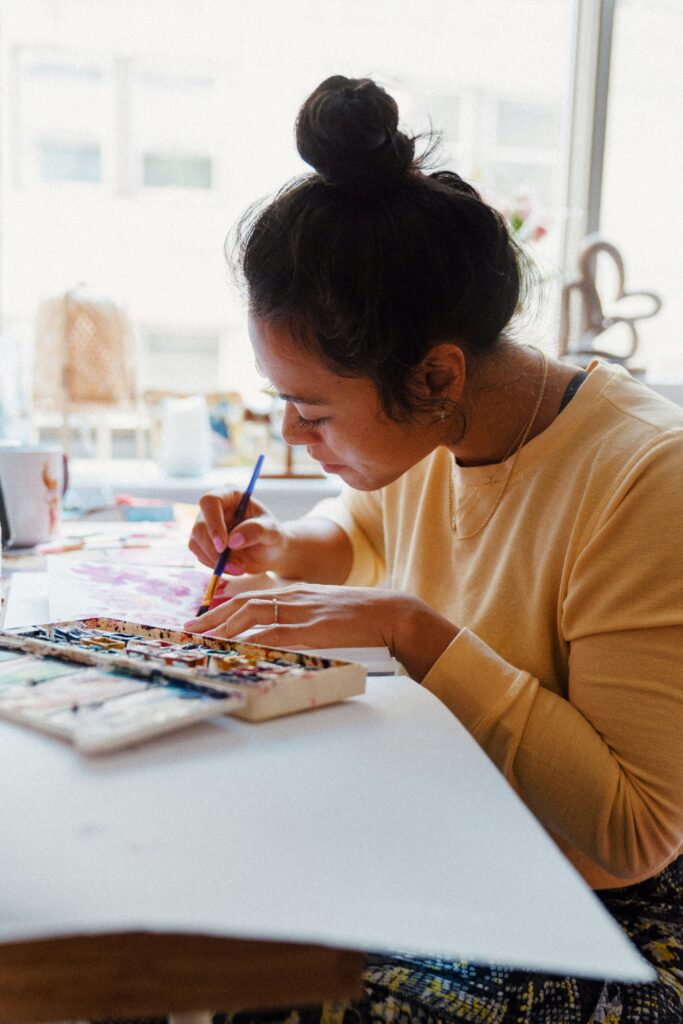Feeling Lost in Your 40s? How to Navigate Life’s Big Transitions

One morning, you catch your reflection and pause — not because of the new lines or gray hairs, but because you barely recognize the person looking back. She’s capable, resilient, and deeply tired. She’s done everything she was supposed to do, but somewhere along the way, the map she was following stopped making sense. That’s what your 40s can feel like — not a breakdown, but a recalibration. A chance to ask, “Who am I now, and what do I actually want next?”
If you’re feeling lost in your 40s, you’re not alone. So many women find themselves in this season of questioning, caught between who they’ve been and who they’re becoming. It can be disorienting, but it can also be deeply transformative. Feeling lost doesn’t mean you’ve failed — it means your inner compass is pointing toward something new.
The Myth of “Having It All Figured Out”
For most of our lives, we’re told that by our 40s we should have it all sorted out — the steady job, the loving family, the sense of purpose that ties it all together. But what no one tells us is that midlife often brings a shift that feels like starting over. The very things that once defined success can start to feel hollow, and you might find yourself wondering if this is all there is.
In our 20s and 30s, we often run on autopilot. We chase dreams, build families, and check boxes that once seemed so important. Then one day, life gets quiet — and in that silence, you start to notice that something’s missing. What once motivated you doesn’t anymore. The goals that once made you proud now feel like someone else’s.
Maybe you once dreamed of climbing the career ladder, but now you crave work that feels meaningful instead of impressive. Maybe you loved the chaos of raising small kids, but now that they’re older, you’re left wondering who you are without the constant noise. It’s not that your old dreams were wrong — they were just meant for an earlier version of you.
This realization can be painful, but it’s also a sign of growth. You’ve evolved, and your life is asking to evolve with you. The 40s are not about unraveling what you’ve built; they’re about aligning it with the person you are now.
As coach Siobhán Gallagher writes, midlife can be “a recalibration, not a crisis.” We’re evolving — and that means our dreams and definitions of success have to evolve with us.
The Weight of Midlife: Career, Family, and the “Sandwich Generation”

At the same time, the 40s can feel heavier than any decade before. You might be managing a demanding career, caring for aging parents, and raising kids or supporting young adults — all while trying to find time for yourself. It’s a season where everyone seems to need something from you, and your own needs slip to the bottom of the list.
This stage of life is often called the sandwich generation — stuck between two worlds, supporting older and younger generations while holding your own life together in the middle. It’s no wonder so many women feel burnt out or invisible.
The daily mental load can be crushing: remembering appointments, coordinating meals, checking in on loved ones, managing finances, and still trying to keep up with friendships or personal goals. And the hardest part? Most women carry all this quietly, without complaint, because they think they should be able to handle it.
But “handling it” doesn’t mean thriving. It doesn’t mean you’re okay. It means you’ve learned to function while carrying more than anyone should have to.
Eventually, your body, your relationships, or your spirit start to send signals that something needs to change — sleepless nights, irritability, exhaustion, or that nagging feeling that you’re just going through the motions. Recognizing that truth isn’t selfish. It’s the first act of self-respect.
Rediscovering Your Identity Beyond the Roles You Play
One of the biggest reasons women feel lost in midlife is because we’ve built our identities around our roles — mother, daughter, partner, professional, caregiver. These roles give structure to our lives, but they also make it easy to forget who we are outside of them.
Think back to what used to light you up before life got so full. Maybe it was travel, painting, hiking, writing, or simply having unstructured time. Those passions may feel buried, but they’re not gone — they’re waiting to be rediscovered.
As I share in my article on how to find yourself when you feel lost in midlife, the rediscovery process begins when we start listening inward instead of outward. It’s about creating space for curiosity, for daydreams, for asking, what if?
For some women, rediscovery begins with something as simple as solitude. Spending time alone — without an agenda, without performance — can help you hear your own thoughts again. It might feel uncomfortable at first, but it’s in that quiet that your true self begins to speak up.
When you start peeling back the layers of responsibility, you begin to see the person underneath. She might feel unfamiliar at first, but she’s been there all along — the version of you who wants to laugh more, dream again, and make decisions from joy rather than obligation.
Rediscovering yourself doesn’t happen overnight. It’s a process of curiosity, not perfection. It’s asking gentle questions: What do I need right now? What feels true for me? What can I let go of that no longer serves me?
And it’s about giving yourself permission to matter — not just as a caretaker or achiever, but as a whole person.
When Career and Purpose No Longer Align
It’s common for women in their 40s to feel a growing disconnect from their work. The career that once felt meaningful might now feel like a constant drain. Or maybe you’ve achieved the success you aimed for and find yourself wondering why it doesn’t feel as satisfying as you thought it would.
This shift doesn’t mean you’re ungrateful — it means you’re outgrowing an old version of yourself. Our 40s often mark the beginning of what psychologists call individuation — the process of aligning your outer life with your inner truth. You start to realize that your job title isn’t your identity, and that fulfillment can’t come from external validation.
For some, this means exploring a new direction — starting a business, going back to school, or pursuing something creative. For others, it’s about redefining how they work — setting boundaries, pursuing projects that feel meaningful, or using their voice in ways that once felt impossible.
Elite High Performance describes this process as “moving from autopilot to alignment,” and that’s exactly what this season is about — choosing alignment over appearance.
If you’re questioning your purpose, that’s not a sign of failure. It’s a sign of awakening. You’re realizing that your time and energy are valuable resources, and you want to spend them on something that feels aligned with your values.
Give yourself permission to pivot. Even small adjustments — taking a course, exploring a new interest, or scaling back to create space — can reconnect you with a sense of possibility. You don’t need to know your “next big thing” yet. You just need to honor the whisper that says, there’s something more.
Friendships That Evolve — and Sometimes Fade
Another tender part of midlife is watching friendships shift. Some deepen beautifully, while others fade without explanation. The people who once felt like home might now feel like they’re from another world.
This can be painful, especially when you’ve shared decades of memories. But it’s also natural. As you change, so does your circle. Friendships built around shared circumstances — like work, kids, or proximity — sometimes drift when your values or interests evolve.
The 40s often invite a craving for authenticity. You may find yourself drawn to people who feel emotionally safe, who can handle your honesty, who listen without fixing. You may also outgrow relationships that thrive on gossip, competition, or surface-level connection.
Letting go doesn’t mean you don’t care; it means you’re making space for people who align with the woman you’re becoming.
If you’ve been feeling lonely, remind yourself that loneliness is often the in-between — the space between what’s ending and what’s waiting to begin. New friendships built on shared truth will come, often when you least expect them.
Choosing Yourself First (Without the Guilt)
We’re taught to believe that good women put everyone else first. But constantly doing so comes at a cost — exhaustion, resentment, and a quiet grief for the parts of yourself you’ve set aside.
Choosing yourself isn’t selfish; it’s essential. It’s the foundation of emotional health. When you start prioritizing your needs, you reclaim energy, clarity, and joy — the very things that allow you to keep showing up for others in a way that’s sustainable.
This might look like setting boundaries around your time, asking for help instead of doing it all, or giving yourself permission to rest without guilt. It might also mean saying no more often — not out of rejection, but out of self-respect.
When you choose yourself, you teach the people around you that your needs matter, too. You model what healthy balance looks like. And over time, you start to feel more like yourself again — not the version of you who’s always available, but the one who’s fully alive.
Reconnecting with Joy and Passion

Midlife is often misunderstood as the beginning of decline, when in reality, it’s the perfect time to rediscover what makes you feel most alive. You don’t need to make dramatic changes to reconnect with joy — small acts of self-expression can make a profound difference.
Joy might look like signing up for a pottery class, joining a book club, taking solo walks, or starting a creative project just for fun. It could mean reconnecting with an old dream or exploring something you’ve never tried. The point isn’t to be productive; it’s to be present.
Reconnection also means giving yourself permission to feel good without earning it. You don’t have to justify joy through accomplishment. You can simply enjoy the moment — the way sunlight hits your morning coffee, the sound of laughter from someone you love, or the peace that comes from doing nothing at all.
When you start saying yes to small moments of pleasure, you reawaken your sense of possibility. You remind yourself that you’re more than your to-do list. And in those small, intentional choices, life starts to feel like yours again.
Turning Feeling Lost Into a Life Redefined
Here’s what I want you to know: feeling lost in your 40s isn’t a dead end. It’s an invitation to rebuild your life from a place of truth. You’ve spent years meeting expectations — now it’s time to explore what genuinely fulfills you.
This is your permission slip to slow down, listen inward, and take up space in your own story. You don’t need to have all the answers right now. You just need to start listening to what’s been waiting beneath the surface.
Maybe that means reconnecting with your creativity, seeking therapy, or making one small change that brings relief. These choices might feel small, but they create momentum. Over time, they help you move from uncertainty to clarity, from burnout to balance.
You are not behind. You are simply at a new beginning.
You Don’t Have to Navigate This Alone
Perimenopause can feel like one long, confusing science experiment — except you didn’t sign up to be the lab rat. But here’s the good news: you don’t have to figure it all out by yourself.
Book a Free Consultation
Let’s sit down and talk about what you’ve been going through. No judgment, no rushing you out the door — just a conversation with someone who truly gets it.
Book your free consultation here →
Download My Free Guide
Not quite ready to chat one-on-one? Grab my free guide, “Is It Perimenopause or Am I Losing My Mind?” and join other women who are navigating these changes and doing life their way.
Download the guide here →
- A comprehensive checklist of common symptoms (and the ones nobody talks about)
- Signs your doctor might be missing
- How to find perimenopause-savvy healthcare providers
- Resources for navigating this transition
Is It Perimenopause or Am I Losing My Mind?
| Designed by House of Bettencourt
| Terms
supervised by Dylan Cimbura
Hernandez, LMFT #120829
Employed at Humboldt Therapy
© 2025 theo triplis therapy